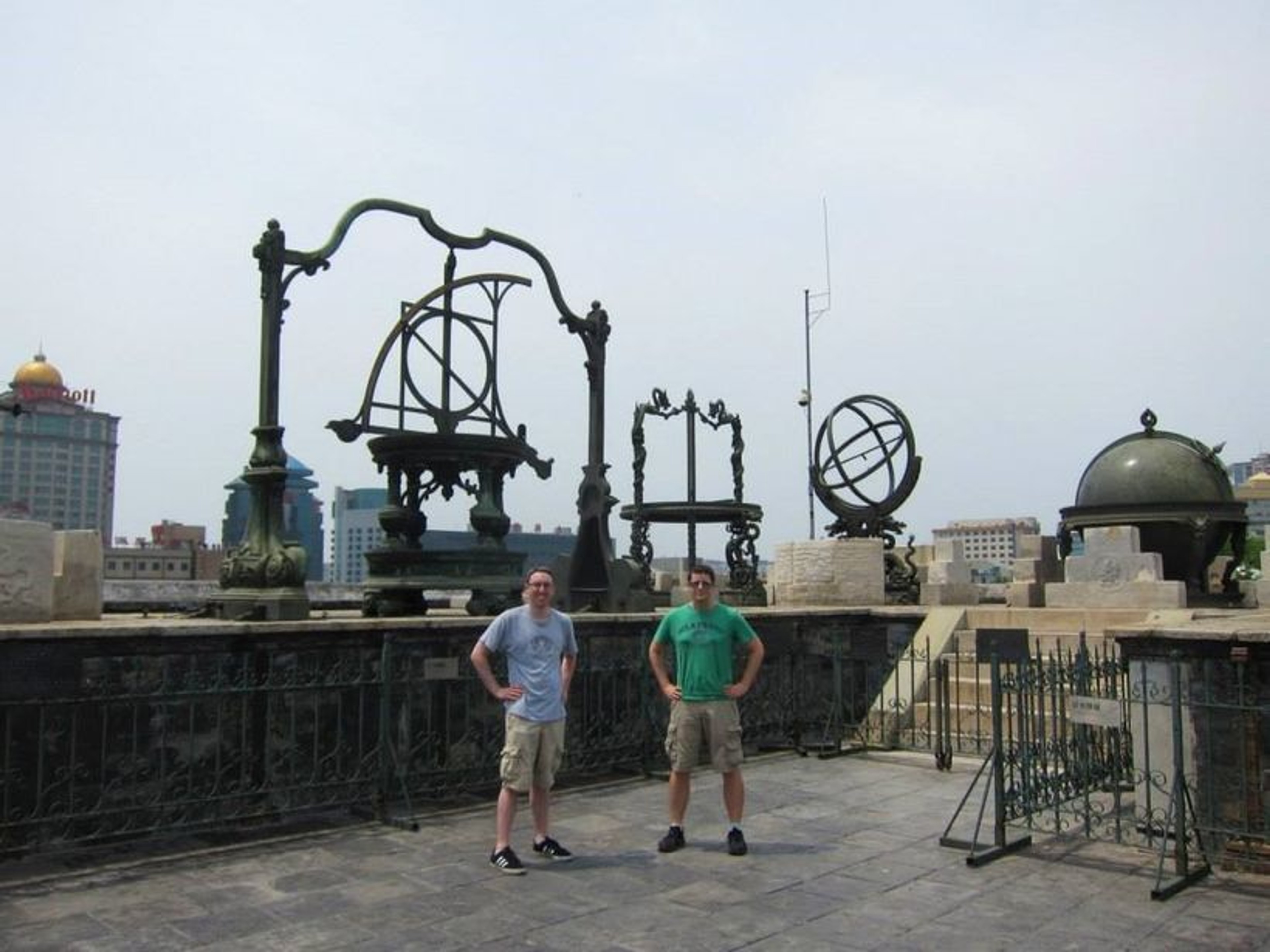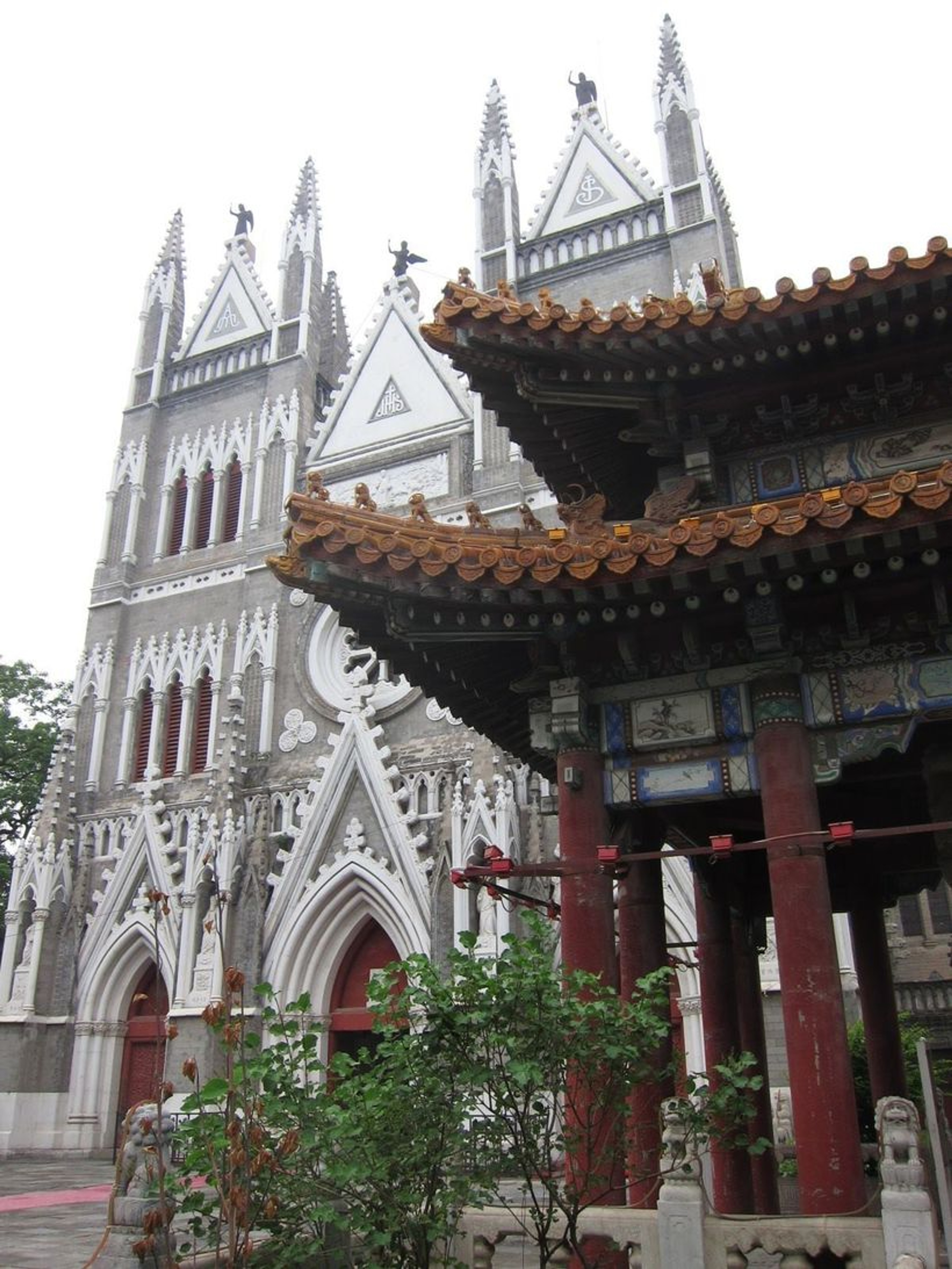Jesuits Succeeded in Ancient China by Predicting Eclipses
People in the United States are getting ready to watch for a total solar eclipse on Monday, August 21st. Astronomers have predicted that the path of total eclipse is a 70-mile-wide ribbon that will arc across the continental United States from coast to coast. There is even pinpoint data on when and where the eclipse will start, stop and be most visible down to the second.
While we are getting ready to purchase the right gear to watch and record the eclipse, we should also give thanks to astronomers for providing us with such accurate predictions. The excitement for watching a total solar eclipse in my friend circle inspires me to think that this might be a good time to review an interesting part of Chinese history where celestial knowledge was used by Jesuits as the key to set their feet in imperial China.
Ancient China was obsessed with predicting eclipses because they were considered as a major element of forecasting the future health and successes of the Emperors. Emperors in China were called “The Son of Heaven” and, like many rulers around the world, they claimed that their power came from the divine, in this case literally the sky and the celestial realm above. One of their responsibilities as “The Son of Heaven” was to get blessings from Heaven for good harvests. If winter came early or drought parched the land, people would question if the Emperor had done things to offend Heaven or might even start to doubt that he was the ‘Chosen One’. Therefore, emperors in China attached great importance to being able to predict the seasons as a means to establish their authority and ensure the prosperity of the empire. In Beijing, the largest temple is not a Buddhist, Daoist or even Confucian temple. It’s the Temple of Heaven, a place where even the Emperors had to kneel dozens of times to perform annual ceremonies of prayer to Heaven for good harvests.
Records show that Chinese scholars figured out the cause of an eclipse as early as 20 BCE but their predictions of such phenomena had been hit and miss until the late Ming dynasty (1368 – 1644 CE) when the Jesuits came to China to preach Christianity. Eager to argue the superiority of their religion and culture, they set about trying to prove that they had better contact with Heaven and more advanced science. They brought with them not only the Bible but also telescope, celestial globe, astrolabe, and more importantly, a copy of the On the Revolutions of Heavenly Spheres (published in 1543 CE), by Nicolaus Copernicus.
Copernicus advocated for a heliocentric worldview where the planets orbit the sun instead of the earth. It was extremely controversial in Catholic Europe and his ideas were often suppressed. Therefore, it may be difficult to imagine a group of European priests laboring over astronomical tables and models in Beijing before provocatively predicting the appearance of Mars and the eclipse of the sun, but that was exactly what happened in 16, 17 Century China. Much of the equipment can still be found today in Beijing near Jianguomen Gate and definitely worth seeing. The Jesuits made very bold statements about the eclipses and, after being proven right, they were welcomed by the Chinese imperial courts and given officials titles with important responsibilities. Among those Jesuits, the two most famous are Matteo Ricci (1552 –1610 CE) and Schall von Bell (1592 –1666 CE).

At Beijing Ancient Observatory where Jesuits used these astronomical instruments to predict eclipses. Credit Jenny Bourne
Matteo Ricci came to China at a time when the imperial court was desperately seeking a better way to track the seasons and to guide agricultural activities that were just beginning to change with the introduction of crops from the New World. Xu Guangqi, an open-minded Chinese scholar was appointed to reform the Chinese calendar. Xu chose a meritocratic method to select scholars who had the best knowledge about the celestial events to work with him. He held a competition and invited both Chinese and Western astronomers to predict the next eclipse. Ricci successfully predicted a solar eclipse on September 22, 1596, earning him the opprtunity to work with Xu on reforming the Chinese calendar system. The new calendar provided more accurate predictions of eclipses of the sun and the moon and better guidance for planting and harvesting. Ricci was the first Westerner to be invited to the Forbidden City and appointed as an advisor to the Chinese emperor. This calendar reform marked the first major collaboration between scientists from Europe and China.
Schall von Bell managed to play an even greater role in Imperial China. He held public positions across two different Chinese dynasties: the Ming Dynasty and the subsequent Qing Dynasty (1644-1912 CE). Schall von Bell became a trusted friend of the first emperor of the Qing dynasty. History records showed that the emperor visited Schall von Bell’s residence 24 times in 2 years, which was very rare for any emperor. Schall von Bell was made a mandarin and held an important post in the imperial court: Director of the Imperial Observatory and the Tribunal of Mathematics. For the next hundred years or so, Western astronomers continued to hold this important position in the Chinese government.

Jesuit church built near the Forbidden City in Beijing. Credit Jenny Bourne
Matteo Ricci and Schall von Bell, among other Jesuits, left Europe for China in their youth and never looked back. They spent the rest of their lives in China and were buried in a foreign land. They acquired Chinese language and culture, adopted Chinese names and traditions, and held important positions in imperial Chinese courts. The calendars they worked on dictated when farmers should plant, irrigate, and harvest the land. In an agricultural society like China, it is no exaggeration to say that those non-Chinese were trusted with controlling the lifeline of the Chinese people for centuries.
Jesuits succeeded in China not only because of their personal efforts, but also because China’s meritocratic system made it possible for them to succeed. A meritocratic system is where people are given roles and responsibilities that match with their abilities without question, and is a society that fosters collaboration and innovation. The Jesuits shared their knowledge and won the Chinese Emperors’ and people’s trust. But, on the other hand, it was the imperial courts’ open-mindedness and confidence in embracing foreigners that made this cultural exchange possible.
Today, China is quickly developing science and technology. In the near future, China may once again transition to teaching knowledge rather than learning from others. Last year, China opened the world’s largest telescope, the Five-hundred-meter Aperture Spherical Radio Telescope(FAST) or ‘the Eye of Heaven’ in Chinese. There are plans to launch space-based telescopes like NASA’s Hubble. As a Chinese saying goes, “history is the mirror to the future”. Learning from the past, we, as citizens in the global village, will only be able to move forward when we work together instead of reinventing the wheel in separate pockets of the world.
References:
http://news.ifeng.com/history/zhongguogudaishi/detail_2010_10/28/2926617_0.shtml
http://www.faculty.fairfield.edu/jmac/sj/scientists/ricci.htm